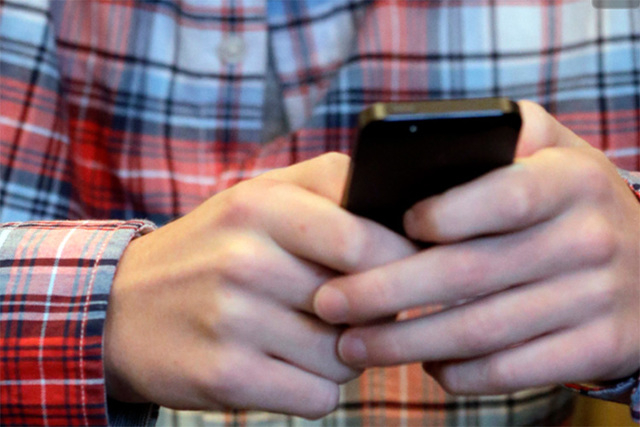Someone is tapping cellphones in Las Vegas, other U.S. cities
If you talk on your cellphone near the South Point, there’s a chance someone is secretly listening to your conversation.
A Las Vegas man recently discovered a listening device hidden somewhere near the hotel-casino on Las Vegas Boulevard — one of nearly 20 found, so far, in cities across the country.
Their purpose? To break into your most private affairs and mine them for valuable information.
Known in the tech community as “IMSI catchers,” these devices can be bought from online retailers or home-built by criminals for as little as $1,800. The devices, which can impersonate a cellphone tower and intercept a signal, are being detected at a time when people are becoming aware that electronic communication is anything but private.
A monitor with an IMSI catcher can locate and identify nearby phones by adding specific phone numbers to a “catch list.” Someone wanting to get at the secrets of a high-level casino executive, for example, enters the phone numbers of the executive’s assistants, secretaries, business partners and friends — and waits for that phone to come into the tower’s range.
While often described as fake cell towers, IMSI catchers don’t necessarily take that form.
“It could be somebody sitting in a coffee shop with a backpack,” said Les Goldsmith, CEO of Las Vegas-based ESD America, who is credited with discovering the IMSI catchers.
A technology provider for the national defense industry and law enforcement, ESD America is a go-to source for high-level executives and military personnel seeking to protect their digital communications. The company recently released the super-secure CryptoPhone 500, which, unlike your cellphone, is equipped with strong firewall that keeps tabs on any attempt to break into the phone or capture its signal. It also alerts the user to the attack.
After noting a number of reports of attempted intercepts, Goldsmith asked his 6,500 customers to email or tweet a screenshot whenever an alert pops up on their phone. Over the past six months, ESD America has been tracking the customer reports and has identified nearly 20 fake cellphone towers in operation from Boston to Chicago to Los Angeles. The company plans to share its data with a new Federal Communication Commission task force created to identify those behind the spy campaign.
And just who is listening in? It’s too early to tell, said Goldsmith.
“All they’re doing is monitoring phone calls,” said Goldsmith, a transplant from Australia.
Goldsmith said it could be the federal government or law enforcement agencies or everyday tech-savvy criminals out to steal anything from credit card numbers to business plans to the details of a highly classified deal. Many of the 20 sites his company has identified are near military installations, but that could be attributed to his customer base being heavy with military personnel.
While Goldsmith knows there’s an IMSI catcher in use near the South Point, he can’t say where it is or what it looks like. The CryptoPhone 500 can detect an attack in a certain area, but the technology cannot pinpoint an exact location. Because the towers can be easily concealed, he’s never seen one. He just knows they’ve been attacking his company’s phones.
Hackers can intercept phone calls in the most discreet ways. A device in a backpack is capable of intercepting calls within 200 yards, while something resembling the ubiquitous cellphone tower could have a range of 3 or 4 miles.
“Now you can do it with a cellphone and a laptop,” Goldsmith said. “The interceptor could be in one location now, and five minutes later it could be on the other side of the Strip.”
The budding trend of “signal-catching” has caught the attention of congressional leaders who have urged the FCC to do what it can to put a stop to it. Federal law prohibits the purchase or use any device to intercept the radio communication of another person without appropriate authorization. That includes law enforcement, security agencies or intelligence authorities.
“Americans have a reasonable expectations of privacy in their communications, and in information about where they go and with whom they communicate,” U.S. Rep. Alan Grayson, D-Fla., wrote in a letter to FCC Chairman Tom Wheeler. “It is extremely troubling to learn that cellular communications are so poorly secured, and that it is so easy to intercept calls and track people’s phones.”
Still in the early stages of its investigation, the FCC has identified no suspects.
Contact reporter Ed Komenda at ekomenda@reviewjournal.com or 702-383-0270. Follow him on Twitter @ejkomenda.

















